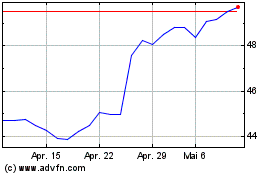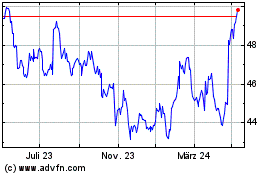By Saabira Chaudhuri
Wash your hands, wear a mask and don't forget to gargle with
mouthwash.
That's the message Unilever PLC and Colgate-Palmolive Co. are
carefully starting to push after research they commissioned showed
that certain types of mouthwash and toothpaste could potentially
help deactivate the virus that causes Covid-19.
Now, Unilever is launching mouthwash brands in new markets,
while Colgate has shared the results of its study with
dentists.
Reducing virus particles in the mouth could help fight against
the pandemic, the companies said, because Covid-19 can be spread
through droplets generated when an infected person coughs, sneezes
or speaks. Both companies said the mouthwashes dissolve the outer
protective layer of virus particles, preventing them from attaching
to cells and infecting them.
But based on tests so far they can't definitively say how long
the benefit would last or what impact coughing would have. That
makes it hard to judge how useful oral-hygiene products could be in
curbing transmission.
Unilever said an October lab-based study it commissioned found
mouthwash containing cetylpyridinium chloride, or CPC -- an
ingredient used by dentists for its antibacterial properties --
reduced SARS-CoV-2 particles by 99.9% after 30 seconds of
rinsing.
"While we are clear that this is not a cure or proven way to
prevent the transmission of coronavirus, the results are very
promising," said Glyn Roberts, Unilever's head of research and
development for oral care.
Early in the pandemic, scientists from Cardiff University in
Wales and other institutions called for more research into the
potential role of mouthwash in fighting Covid-19. Previous studies,
they said, had shown that ingredients commonly found in mouthwashes
could deactivate other viruses. Mouthwash makers say sales have
risen this year amid broader demand for hygiene products.
Angela Rasmussen, an associate research scientist at Columbia
University's Center of Infection and Immunity who reviewed the
results of the study commissioned by Unilever, said that the
findings were promising but results from human trials are
needed.
"What happens in a culture dish is not indicative of what would
happen in a patient's actual mouth and throat," said Ms. Rasmussen.
"While it's great for a short period of time to reduce virus
secreted by those cells, what really is going to be important is
how long that effect will last."
Unilever said it plans to follow its study -- in which
scientists from Microbac Laboratories used a culture dish to
simulate the viral load in the mouth -- with a trial in at least 50
people early next year. It will also look into how mouthwashes
could impact other viruses.
In the meantime, Unilever is launching mouthwash with CPC in a
string of new markets, from Italy and France to India and
Indonesia, under brands including Pepsodent, Mentadent, Signal and
Close-Up. The company doesn't plan to launch these in the U.S.,
where its oral-care business is smaller and the regional rights to
some of the brands are held by other companies.
Unilever isn't making any new claims on product packaging, but
has been promoting its findings through social media and its
website.
Colgate, the world's largest toothpaste maker, said its lab
tests, conducted by Rutgers New Jersey Medical School, also showed
some kinds of toothpaste, mouthwash and mouth spray can virtually
eliminate the virus that causes Covid-19. The toothpastes contain
zinc or stannous, a mineral that can help fight gum disease, while
the mouthwashes contain CPC.
Colgate said it is sharing its findings with dentists and notes
many are now asking patients to rinse before procedures to reduce
the possible presence of the virus.
The company said a separate clinical trial testing mouthwash on
50 hospitalized people suggested the benefit could last between 30
and 60 minutes after rinsing. Full results haven't yet been
shared.
The company is also funding additional clinical studies in the
U.S. and Brazil in which 260 people with Covid-19 are
participating.
"We think oral care has a role to play in fighting the global
pandemic, alongside other preventive measures," said Colgate's
Chief Clinical Officer Maria Ryan.
Some companies say it is too early to make any virus-related
claims about mouthwash or toothpaste.
Johnson & Johnson, owner of Listerine, said lab-based
findings about oral-care products and the virus, while high
quality, aren't sufficient to advocate the use of mouthwash as a
prevention measure.
"Listerine Antiseptic is not intended to prevent or treat
Covid-19 and should be used only as directed on the product label,"
a spokeswoman said, adding that J&J intends to actively
participate in the scientific exchange on this topic.
In October, J&J said its third-quarter oral-care sales grew
10.8%, partly attributing the rise to "increased demand globally
related to the Covid-19."
Procter & Gamble Co. isn't commissioning its own studies and
said it is too early to tell how mouthwashes impact the virus. It
said its Crest mouthwashes, many of which contain CPC, are being
tested by third parties.
Write to Saabira Chaudhuri at saabira.chaudhuri@wsj.com
(END) Dow Jones Newswires
December 12, 2020 05:44 ET (10:44 GMT)
Copyright (c) 2020 Dow Jones & Company, Inc.
Unilever (EU:UNA)
Historical Stock Chart
Von Mär 2024 bis Apr 2024

Unilever (EU:UNA)
Historical Stock Chart
Von Apr 2023 bis Apr 2024
